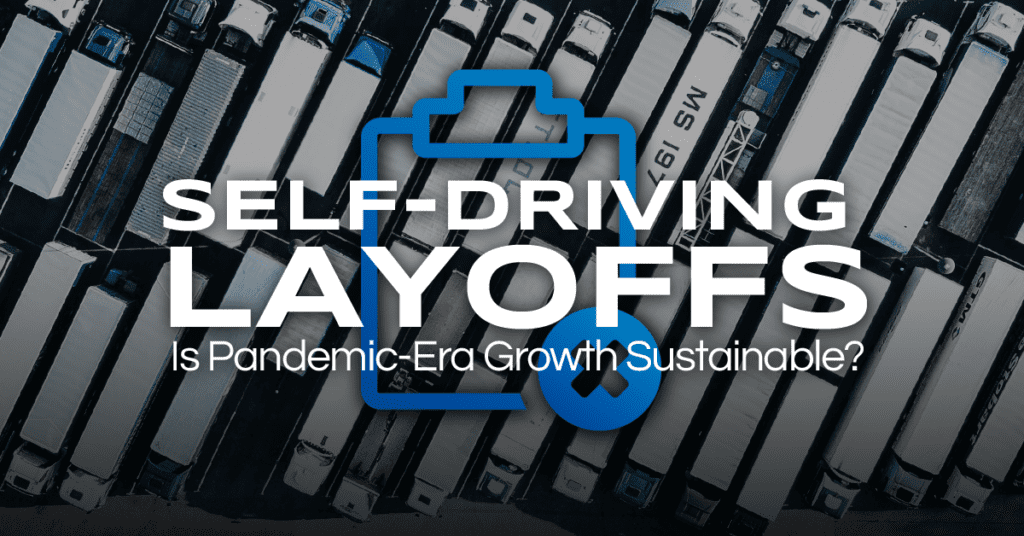
Impact of the Economic Downturn on the Logistics Industry
According to the latest reports, the logistics industry is witnessing a significant drop in employment as consumer spending shifts away from goods and towards services, causing a drop in e-commerce growth and a slowdown in freight demand. Trucking, warehousing, and parcel-delivery companies have cut jobs in response to the slowdown, causing many logistics companies to begin massive pullbacks on hiring. Beyond trucks, we saw the warehouse sector come face to face with one of the largest monthly drops in the past decade.
It’s important to note that the majority of the job losses are in industries that thrived during the pandemic. Amazon, for instance, has already initiated a cost-cutting review, implementing targeted cuts to bring down costs. Other tech giants such as Facebook, Lyft, HP, and Salesforce have also announced layoffs to counteract the overgrowth that occurred during the pandemic. This raises an important question, is employment in these booming industries sustainable?
Noble Beginnings
Embark, one of the big names in self-driving big rig’s, was founded back in 2016 and has since raised over $115 million in funding. Beyond that, they began the process of making good on their promises. The company previously achieved successful public road tests and even partnered with major shipping companies such as HP and AB InBev to conduct pilot programs.
Their main goal as a company has always been working to make commercial trucking safer, more efficient, and less expensive by enabling trucks to operate safely and efficiently without a driver on the highway. By taking out the human element, they believed that they could make the industry much safer and more efficient. This was echoed by Srikanth Saripalli, director at Texas A&M’s Center for Autonomous Vehicles and Sensor Systems, who described their main aim as automating the, “…dull, dirty, dangerous…,” tasks, leaving humans to focus on more complex and creative work!
The House Automation Built
If you remember way back to 2017, you’ll recall that the Texas Legislature passed laws allowing autonomous vehicles to operate on Texas roads. This exciting legislature began instantly attracting driverless car companies to the state. Embark, along with some other big names in the game, have been utilizing autonomous trucking technology being developed at Texas A&M University ever since.
As they’ve gone on to explore this groundbreaking new tech, lots of new ideas have prospered and it really seemed as though the sky was the limit. At one point, there was even talk of expanding into Texas’ infrastructure and launching a first of its kind self-driving trucking lane between Houston and San Antonio!
The Memo Nobody Wanted
Sadly, despite the team’s hard work, undeniable accomplishments and high hopes, Embark CEO, Alex Rodrigues, acknowledged in a company-wide letter that can really be summed up by one line, “success was not guaranteed.” He expressed his disappointment having to lay off approximately 70% of the company. The remaining 30% of the company will turn their focus on an orderly wind-down of its operations, supporting its laid-off employees, and evaluating its options, including selling assets, restructuring, or shutting down completely.
The laid-off employees have been reassured that they will receive severance, benefits, equity, and career support from Embark. Despite the closure, Alex believes that the work of the company has made a difference in pushing the autonomous trucking industry forward. In addition to the layoffs, the company also closed its offices in Southern California and Houston. Only time will tell the true impact of these setbacks on the industry as a whole.
Greener Pastures
Despite the recent economic challenges, there is still optimism in the logistics industry, as some top trucking company executives predict that freight demand will improve in the second half of the year due to an increase in orders from retailers. However, the Logistics Managers’ Index report for February showed that transportation prices contracted at the fastest rate in the index’s 6½-year history.
This highlights the importance for companies to remain vigilant and ready to adapt to the changing economic climate, and emphasizes the importance of considering just how sustainable astronomical growth is especially when that growth is based on something that’s not permanent such as a pandemic. Only the future can tell what impacts these setbacks will have on the automated trucking industry and logistics as a whole.
If you made it to this part of the article, we’d just like to take a moment to thank you for taking the time to read it. Be safe out there and as always, If you’re in search of CDL A, B, or warehouse positions, check out our open positions. And if you need staffing solutions for commercial driving or industrial positions, be sure to explore our offerings.



